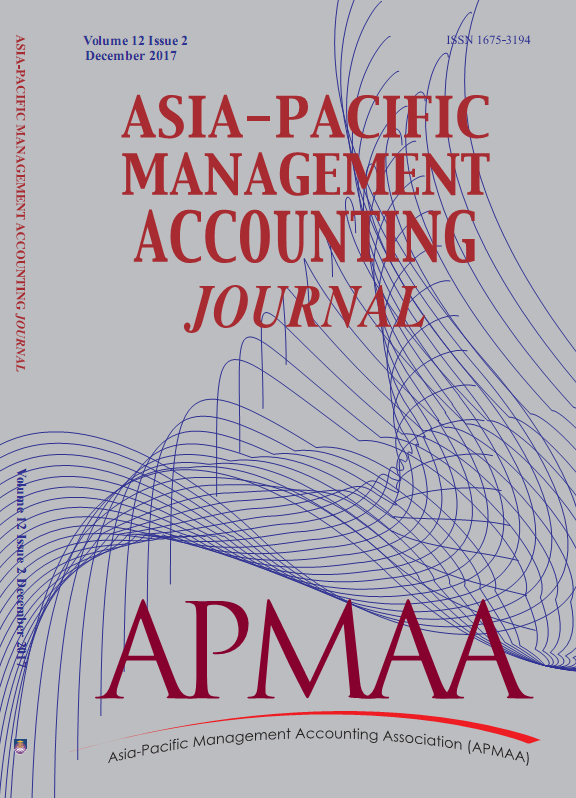Volume 17 Issue 3, December 2022
ARTICLE INFO
Article History:
Received: 27 October 2022
Accepted: 16 November 2022
Published: 31 December 2022
Malaysian Internal Auditor’s Risk Judgment Performance: Examining the Impact of ISA 610 “Using the Work of the Internal Auditor”
Fazlida Mohd Razali1*, Azleen Ilias2, Razana Juhaida Johari3, Sutthi Suntharanurak4 and Norizelini Ibrahim Acis5
1Accounting Research Institute (HICoE), Universiti Teknologi MARA, 40450 Shah Alam, Malaysia
2Department of Accounting and Finance, COBA, Universiti Tenaga Nasional UNITEN, 26700 Bandar Muadzam Shah, Pahang, Malaysia
3Faculty of Accountancy, Universiti Teknologi MARA, 42300 Bandar Puncak Alam, Malaysia
4State Audit Office of the Kingdom of Thailand
5Institute of Professional Studies, Kolej Universiti Poly-Tech MARA, 56100 Cheras, Malaysia
Effective from December 2016, the Malaysian external auditor is required under the revision of the International Standard on Auditing (ISA) to give comments on Key Audit Matters (KAM) in the audit client’s financial statement which indirectly increases the relevancy of ISA 610 “Using the Work of Internal Auditor”. This study aimed to explore the impact of two main aspects under ISA 610 namely “external auditor engagement quality (EX_QUAL)” and “external auditor reliance (EX_RELY)” on internal auditor’s risk judgment performance. The survey of 274 internal auditors in the Malaysian public and private sector found that internal auditors who experienced high EX_QUAL outperform risk judgment as a result of awareness that the judgment made must be reflective of their own competency, independence, work performance and due care. Unfortunately, internal auditors who experienced high EX_RELY did not perform as expected since internal auditor’s anxieties on the bad consequences of full disclosure risk faced by the company. EX_QUAL could be one of monitoring mechanism to improve internal audit’s risk judgment. Furthermore, mitigating action, such as external auditor involvement in internal audit annual risk assessment plan could deter internal auditor bias and increase objectivity, and thus induce a positive impact of EX_RELY on internal auditor’s risk judgment performance.
Keywords: risk judgment, performance, reliance, internal auditor, external auditor

